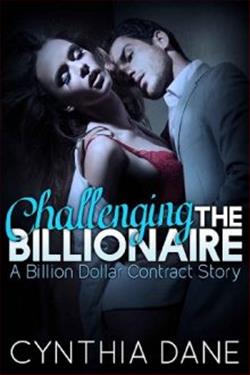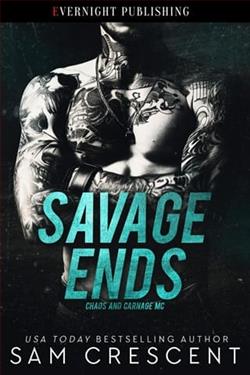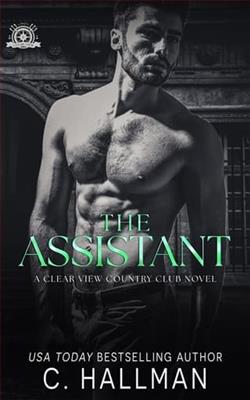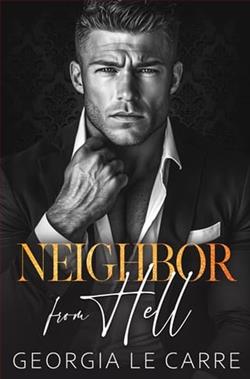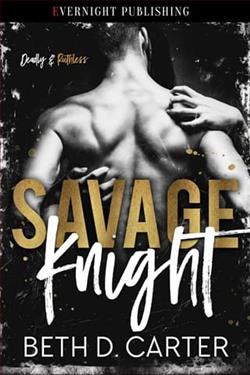Page 2 of Book People
I’m blushing. What the hell?
Ordinarily I’d have been tempted to stand there and engage him in the mother of all scowl-offs, but I’m not doing that with my face on fire, so I turn very slowly and pointedly away and walk – unhurriedly – back into my shop.
Bloody man.
After Jasper, my boyfriend of four years, outed himself as a manipulative narcissist, I swore off men completely. And in the six months since I’ve been here in Wychtree, I haven’t changed my mind.
I don’t miss them. Men.
The most important thing is that I have my shop, and each and every time I step into it, all my anger and my sadness, my betrayal and my grief, melts away. It does so now. The delicate sandalwood scent from the scented candles I burn infuses my very bones, making everything inside me relax.
This is my dream job and has been ever since I was seven and Mum took me to my first bookshop. She was a single mother and we never had much money, so I’d never been in one before. But it was my birthday and Mum wanted to get me a present, so she told me that I could have whatever book I wanted. I was mesmerised by all the beautiful covers, the pictures of kids doing exciting things, and all the dragons and witches and fairies. It seemed so magical. I spent at least half an hour trying to choose the book I wanted, because choosing just one felt impossible. But eventually I decided on a book about a witchanda fairy – my first chapter book – and, when I got home, I read it in one sitting and all by myself.
After that I was hooked. Books became my escape, my happy place. Mum had a second job at a pub at night, and she’d oftenleave me on my own. But I didn’t mind. I’d curl up with a book, because with a book I was never lonely, and with a book I was never afraid. With a book I had friends and adventures, and I lived in a castle or in a tree or in an underwater city, and not in a dodgy flat next to a betting shop. Or a bedsit above a Chinese takeaway. Or the spare room of a friend of Mum’s . . . you get the idea.
Owning a bookshop of my own had been a secret dream for years, but with a childhood that was anything but stable, I wanted security. So I pushed it aside in favour of university and an entry-level publishing job in London with a steady pay cheque, and a man who worked in finance.
Then Mum died and my prince turned into a toad, and nothing felt steady any more, let alone happy. So I ran away.
I didn’t want to stay in London. When Mum died two and a half years ago, she’d left me a property in Wychtree, the village where she’d grown up but which she left when I was a baby. She’d had a falling out (never explained) with her own mother and had sworn never to return. She kept that vow. I’d been resisting making a decision about what to do with the property for a number of reasons, but, after Jasper, I was desperate to leave the big city. So it was to Wychtree I went.
The building had been standing empty for years, so it was a bit dilapidated. But after scrabbling around, trying and failing to find a bank who’d lend me some money, I redid my sums (sansthe cost of labour, since I have two working arms and can slap paint on things) and eventually managed to claw a small amount out of a local building society.
So, I renovated it, aka I put some paint on the walls, and then dedicated the downstairs shop area to, yep, you guessed it: books. It took me a couple of months to get the space ready, and once it was done, I opened the shop.
Starting my own business, especially during tough times for the book trade, was daunting,especiallyin a village that had a bookshop already. But I was determined to make mine work, and, two months on from opening, I’m still as determined. No matter how much of a nuisance the competition just across the high street is turning out to be.
I hum under my breath as I neaten up a stack of thrillers, enjoying the peace of my little shop. I’ve gone for clean white walls and white shelving so as to best display all the lovely covers. There are white tables – with a bit of vintage distressing – where I lay out my new arrivals, and there’s also a section that I curate myself with a brightly coloured sign that says ‘Kate’s top reads’.
Down one end is a big couch covered in colourful throws and there’s a nice rag-rolled rug on the floor. A place for people to sit while they peruse their potential purchases. More brightly coloured signs have been stuck to shelving, some whimsical, i.e. ‘Happy reads for when you’re feeling sad!’, and some more serious: ‘You might want to grab some tissues!’
I wanted it to feel like you might be in your own living room. A place to grab a book, find a comfy chair, and then sit down and read and relax.
People like that. I had lots of villagers coming in initially to see what ‘the Jones girl’ was doing, and to have a general nose about, though now everyone knows I’m here, interest has died off a little. But I’ve had the nicest comments from customers. They’re so pleased someone is living in the building again. Some of them even said they never went into bookshops because they didn’t have the kinds of books they liked, but now they’d found Portable Magic, they were going to come in every week.
And they do.
I’m fiddling around with one of the displays on the table by the door when one of my regulars comes in. It’s Mrs Abbot, aretired district court judge in her late sixties. She was widowed a few years ago and loves romance novels; she can’t get enough of them.
I give her a smile and a ‘Good morning’.
‘Good morning, Kate!’ she responds – she’s always cheerful and everything she says sounds like it should have an exclamation mark after it, whichdefinitelymakes her one of my customers. ‘I love your window this morning!’
‘Oh, excellent.’ I beam at her. ‘Because I arranged it with you in mind.’
‘Well, you’ve certainly sold me on at least two of those titles!’ There’s a hint of wickedness in her brown eyes. ‘You know I like a hot read!’
Oh, yes. I know. And the spicier the better.
‘Speaking of,’ I say. ‘Those three other titles you ordered have come in. Do you want to pick them up now?’
She nods, and while I go behind the counter to retrieve them, she wanders over to the romance section and plucks a couple of titles off the shelf. Then she comes to the counter and puts them down, waiting while I ring up her purchases.
‘You must be looking forward to the festival next month,’ she says conversationally. ‘I always hope for fewer literary sessions, but sadly I hope in vain.’
I frown. I’m not sure what she’s talking about. ‘A festival? What festival?’
‘Oh, All the World’s a Page. You’ve heard of it, yes?’








